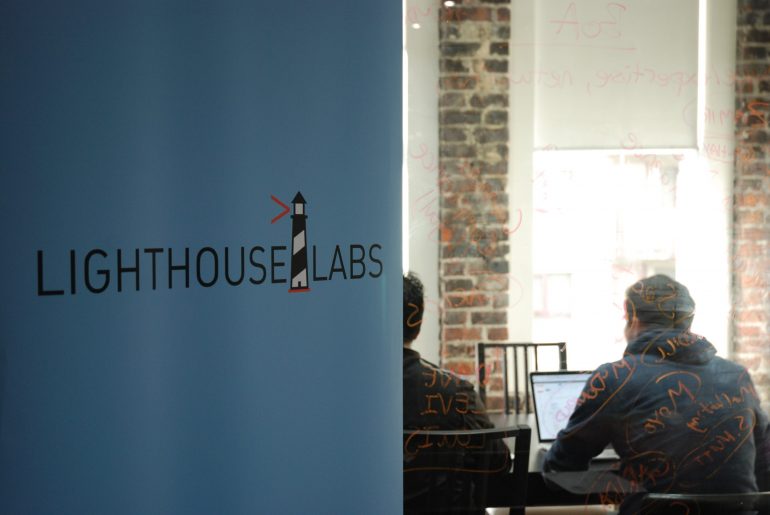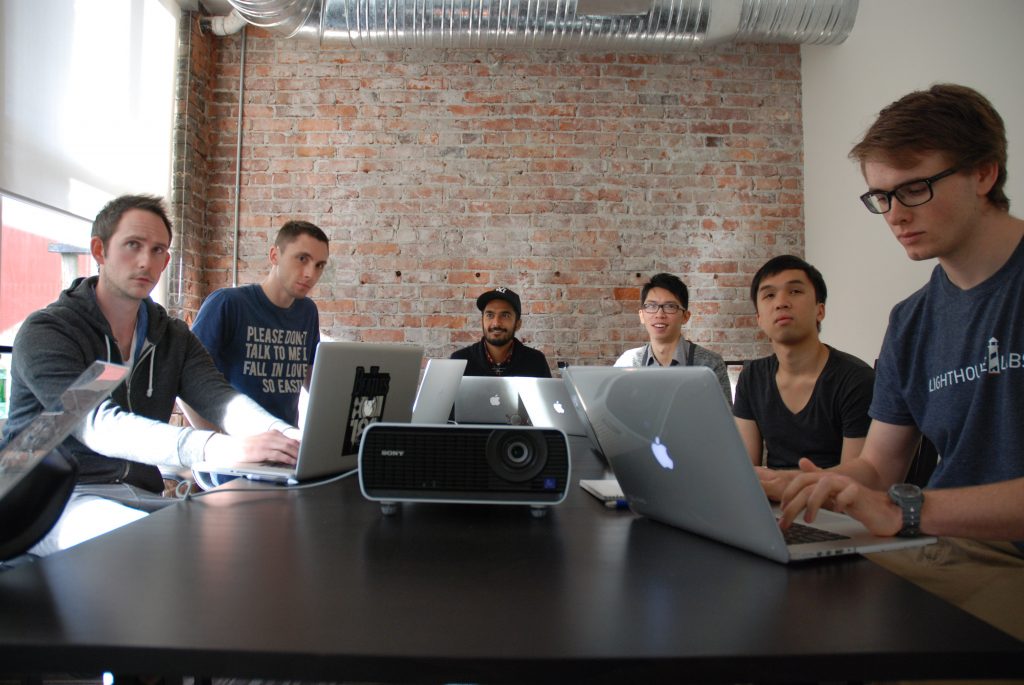“Back in the day”: it’s a growing refrain in the Vancouver technology community.
There’s people waxing nostalgically for the days when a Craigslist ad netted a treasure trove of resumes. Today the supply and demand curve has definitely tilted in favour of development talent, yet this talent crunch is taking a toll: its just one more thing to compete for. Hootsuite’s Ryan Holmes recently shared his take on the situation, and there’s no overnight fix.
Lighthouse Labs, a Vancouver-based “developer bootcamp,” is working at putting a small dent in this situation. Just like there’s nothing cheap or easy about running a tech startup, there’s nothing cheap or easy about becoming a talented and in-demand developer. Not everyone who applies is accepted, and not everyone who is accepted necessarily gets to the promise land. While not quite SEALs training, the eight week coding bootcamp is not for the feint of heart either.
Cofounder Jeremy Shaki recently shared some insights about the day in a student’s life, by suggesting that “the program thus far has been extremely intense.” There’s nothing 9-5 about it. Shaki said “our students are in lecture from 9-11AM and 3-5PM. In between these lecture blocks, they are working on two to four labs, each complete with two to four bonus or ‘stretch’ goals. We do this to ensure students that are comfortable with the material can really squeeze more out of the labs, but also to provide all of our students with goals to achieve on their own time. Its not uncommon to see students using their weekends to work on stretch goals from the prior week – they are motivated.” For most of the students they’re packing up around 11:00pm everyday.
Lighthouse Labs is focusing on developing job ready individuals who are ready to contribute from day one. They’re also doing much more than simply working with students on software development. For instance, Shaki talks about how “at the end of week one, students are tasked with recreating a popular website (reddit, hacker news, etc.) to adhere to better design principles. They were also asked to pitch it to the class and Lighthouse staff. We conduct individual pitch reviews with each one person, with common themes being structuring pitches, presenting with confidence, and conveying complex ideas using simple themes.”
Outside of pitch reviews, each student is given a 20 minute code review with Head Instructor Khurram Virani, and a TA (there’s one TA per four students) meaning a single project gets a lot of attention. This process repeats in Week four, and is designed to be helping ensure students are progressing.
The program currently costs $7,000 + HST, and will be increasing to $9,000 + HST for the March cohort. Credit to them for having rather unique refund policy – if a student leaves before 10 percent of the program is completed, the student will receive a 70 percent refund on their tuition. If a student leaves after 10 percent, and before 30 percent, they will receive a 50 percent refund. Finally, if a student is dismissed after 30 percent of the program is delivered, they receive no refund.
Student Jeffrey Mclean is in the 1st cohort, and says, “I have known for about a year now that I have wanted to develop the (seemingly super-human) ability to create applications and sites with just my ten fingers and a laptop – but I didn’t think it would be possible in such a short amount of time. I’m entering my third week at Lighthouse Labs in downtown Vancouver and we’ve already made several “web apps” (applications used by people over the internet) with real-world functionality and we’re not even half way through the intensive 8 week course. “
Beyond learning today’s in-demand coding skills, Lighthouse Lab is working with a variety of hiring partners. There are currently four companies (Spacelist, Bench, Rets.ly and Wasserman & Partners) who have a guaranteed co-op spot for a student in the current cohort .
The guaranteed hiring partners join the process during week 6 and 7, to interview and make offers to the students. The remaining business partners visit during week eight, to interview and take note of who they are interested in. According the Shaki “we then look at everyone’s notes, take our student’s considerations in mind and place our students accordingly. These co-ops have to be paid. We have the co-op company evaluate our students and go through a joint evaluation of the student at the end.”
The competition and growing demand for talented developers is showing no sign of slowing down in the near future. While Lighthouse Labs is not the ultimate answer for this talent crunch, for some students and companies it’s proving to be a viable and valuable alternative.




